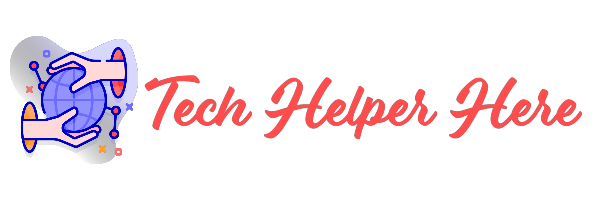How to Cracking the Coding Interview Tips
As we try to make sense of How to Cracking the Coding Interview, we get that it’s a big deal for anyone trying to land a sweet software dev job. It’s not just about knowing your stuff – it’s also about how well you can solve problems and explain tricky ideas. These days coding interviews are getting tougher when companies use websites like LeetCode and HackerRank, or want you to code in Java, Python, or C++. This puts a lot of pressure on people to understand basic algorithms, trees, and recursion, and then use them while everyone’s watching. So, to nail the coding interview, you need to do more than just know your stuff – you’ve got to have a game plan and practice a ton.
To get through this stuff, we’ll talk about key steps. These include getting the basics choosing a coding language that fits the job and what you’re good at, and making a solid study plan. This plan should use different things like the “Cracking the Coding Interview” book. We’ll look at good ways to practice coding problems using simple coding interview questions and tougher ones on sites like LeetCode and HackerRank. We also stress how important it is to do fake interviews to get ready for the real thing. We’ll give you useful tips to make a good impression in the interview. All these plans are meant to give you the know-how and confidence to ace the coding interview.
Get the Basics
Key Data Structures and Algorithms
When we look into the basics of coding interviews, it’s super important to get the main data structures and algorithms. I gotta know the common data structures like arrays linked lists, stacks, queues, and the trickier ones like trees, graphs, and hash tables. Knowing different algorithms is just as big a deal. Starting with simple algorithms like sorting (Merge Sort, Quick Sort) and searching, and then moving on to the harder stuff like Dynamic Programming and Greedy Algorithms is key to nailing the coding interview.
Resources for Learning (Books, Online Courses, Coding Platforms)
To get ready, I use different stuff. Books like “Cracking the Coding Interview” and websites like LeetCode and HackerRank give me great guides and practice problems. They help a lot. To learn step by step, I take courses from sites like GeeksforGeeks, Educative, and AlgoExpert. These help me build a good base in both theory and how to use it.
Also, doing coding challenges and practice interviews on sites like Interview Cake and Pramp makes my problem-solving better. It also helps me be more ready for interviews. These resources don’t just give lots of problems. They also teach me about good coding habits and how to make my code run faster. These things are super important for any coding interview.
By adding these study materials to my plan, I make sure I’m ready to answer any question they throw at me in coding interviews.
Choose the Best Coding Language
Why It’s Important to Know Your Language Well
When we pick a coding language for an interview how well I know it matters. Most companies let you use any language you want, but Google allows Java C++, Python, or JavaScript . It’s key to go with a language I know inside out, not one that’s new but popular at the company. This way, I can spend more time solving the problem instead of getting stuck on how to write it in a language I’m not great at .
From what I’ve seen and experienced as an interviewer, people who use a language they know well do better. This is because they can think about how to solve the problem instead of worrying about getting the code right, which matters when they’re feeling stressed during an interview.
Good Languages to Use in Coding Interviews
The programming language you pick can make a big difference in how well and you solve problems during a coding interview. Python is often the top pick because it’s easy to use and has lots of ready-made functions and ways to organize data. Its simple rules for different data types, like using len(), for … in …, and slicing, make it a favorite for many people, including me.
But other languages like Java and C++ are also good choices. Java is strong but might slow me down in an interview because I need to say what type everything is, which isn’t helpful when you’re trying to answer questions . C++ is kind of in the middle, but it can be wordy when you’re writing on a whiteboard. It’s a pain to write out all the details for things like hash tables when you’re coding by hand.
In the end, the language you know best is the top choice for coding interviews. For example, if you’re good at Java, it’s smart to use it instead of trying to learn Python from the ground up just for interviews. This way, you don’t have to jump between different languages while you’re getting ready and during the actual interviews.
Make a Study Plan
Map Out Your Prep Journey
When I get ready for coding interviews, I start with a big plan. I look at how much time I have before the interview and make a list of stuff I need to learn each day. I put the important things first. I use things like the Grind 75 tool to help me. It makes study plans based on how much time I have, so I can focus on the big stuff. If I have lots of time, I try to take about 3 months studying 2-3 hours every day. This helps me learn everything better. This way of doing things makes sure I cover all the important topics step by step.
Balancing Daily Study and Practice
To make sure I don’t get swamped with my review process, I set a daily goal I can stick to. My game plan is pretty straightforward: I solve one easy and one medium problem every day, and take on one tough problem each week. This way, I end up finishing about 60 problems by the end of the month, which gives me a good mix of different difficulty levels. I also keep an eye on how I’m doing each week tweaking my goals if I need to stay on track.
Also, I mix learning with doing right away. After I study one idea, I jump into practicing questions about it. This helps me remember better and get good at using what I’ve learned. This approach doesn’t just help me understand things better, it also gets me ready for the hands-on part of the interview.
By sticking to this organized study plan and keeping up a balanced daily routine, I make sure I’m ready for any coding interview. This helps me solve problems and well.
Work on Coding Problems
Online Coding Websites (LeetCode HackerRank)
When I do coding problems, picking the right website matters a lot. LeetCode and HackerRank are top picks because they have tons of problems that are like what you’d see in real interviews. LeetCode has a huge bunch of questions ranging from easy to tough, and they cover all the important data structures and algorithms you need to know. This makes it a great place to practice coding questions that might pop up in interviews. HackerRank, on the other hand, has a wide range of problems too. But it doesn’t just stop at algorithm challenges – it also has stuff on databases and AI. This makes it a good all-around platform to practice coding on.
The UI and community backing on these sites make my learning better. LeetCode’s buzzing community helps me see different ways to crack a problem, while HackerRank’s setup, which looks like an IDE is super handy to practice coding in a way that’s close to real interviews. This familiarity can give me an edge during tech screening rounds.
Problems to Zero In On
To get the most out of my practice time, I zero in on certain types of problems. At first, I tackle algo questions in the coding language I picked slowly covering a wide range of topics. This way helps me build a strong base in key areas like dynamic programming, strings, and data structures.
I plan to tackle between 100 and 200 LeetCode problems to get ready. This approach has an impact on my chances of seeing similar or even the same questions in real interviews. Also, sites like AlgoMonster help me to spot and remember important patterns in coding problems, which is key to solve issues in stressful interview situations.
To sharpen my skills more, I take part in practice interviews and coding competitions. These create the time crunch of actual interviews and give useful feedback on how I do helping me find areas to work on. On top of that, I use coding interview cheat sheets to strengthen important strategies and methods making sure I’m ready for any question that might come up.
I focus on these strategic practices to make sure my prep is not just wide-ranging but also sharpens my performance for coding interviews.
Mock Interviews
Value of Practicing with Mocks
Involvement in mock interviews means more than practicing answers; it immerses me in a setup that reflects a true job interview’s stress and standards. These practice sessions are super valuable because they help me refine my answers, control my anxiety, and get feedback right away. By treating each mock as the actual thing, I make sure I’m completely ready, whether that means staying professional or answering tough questions .
Tools for Mock Interview Drills
Several online platforms deliver great tools for mock interview practice. Interviewing.io stands out because it lets you have anonymous practice with pros from leading firms such as Google and Facebook offering a practice run that’s about as real as it gets. The critiques I get from this platform are super helpful for tweaking how I tackle interviews.
Pramp is another cool service; it’s got a peer-to-peer setup for practicing interviews that I dig. It gives me the chance to see the interview from both viewpoints boosting my grasp of what the interviewer wants to see in a candidate.
What’s more, sites like Hello Interview and Codemia mash together AI tech with input from the community to give you an all-around prep tool making sure you’re ready for everything in a coding interview, from laying out system designs to figuring out problems when the clock is ticking.
Interview Tips
Pay Attention to Every Detail
Being extra attentive is key when facing a problem in an interview. I always make an effort to listen when the interviewers offer insights or feedback. Letting go of any prior assumptions and concentrating on the shared information is vital. Such careful listening allows me to grasp the issue more thoroughly and ensures I overlook no important detail that might affect my response.
Share How You Think
It’s important to discuss your thought process during an interview. I always try to articulate my thinking as I work through a problem. When interviewers understand how you approach a challenge, they get a glimpse into your problem-solving skills. By explaining my methods, I also open the door to useful feedback that could improve my approach and help me learn from the experience.
I’ve discovered that sharing my thought process throughout a coding interview is crucial, and it’s even more vital than just getting the right solution. I always ensure to explain my logic while I’m coding detailing every choice and the reason behind it. This showcases my ability to solve problems and makes it less complicated for the interviewer to grasp my method. It’s all about proving I have the capacity to think on my feet and be flexible, not repeating learned answers by heart.
Testing Your Code
I always make a point to test my code in depth during job interviews. First off, I review the reasoning behind my code to see if it fits the problem’s demands. Next, I examine each line to spot possible minor mistakes. I also pay attention to trying out unusual situations that might uncover hidden problems. By checking my work this , I can find and fix any mistakes and feel more sure about confirming that my answer is right if the interviewer questions it.
Conclusion
In this article, we’ve walked you through the complex world of coding interviews sharing tips, How to Cracking the Coding Interview Tips and knowledge to boost your prep game. We’ve highlighted the need to get the basics of data structures and algorithms down pat and to pick a programming language that feels like a second skin to you. We’ve laid out a path that should build up your assurance and skill. Crafting a study plan that fits you like a glove is key, and you’ve got to pair that with steady practice and trial runs in mock interviews. These steps are the bricks that pave the way to a solid foundation setting you up to enter coding interviews cool, calm, and collected. Keep in mind acing coding interviews isn’t about being a coding whiz; it’s also about nailing the skill of tackling problems and talking about your process crystal clear.
As we wrap up our chat, keep in mind that getting ready for your programming interview is a tough yet fulfilling ride. The tricks and advice we’ve talked about are like a light guiding you as you get ready. Seize the big importance of these preparations because they don’t just teach you to tackle coding challenges—they sharpen your problem-solving thinking and tech skills, which are valuable way past the interview scene. Even though we’re at the end of this article, your adventure doesn’t stop here. Let the knowledge you’ve picked up here energize your study routine, stretch your skill limits, and, in the end, help you nail the programming interview making your big dreams a reality.
FAQs
-
What are the best tactics to shine in a coding interview?
To shine in a coding interview pick a programming language you know well. Plan your prep by tackling the biggest topics first. Dig deep into each subject area and practice . Keep coding interview cheat sheets handy to jog your memory on main points and tactics.
-
How can you make a mark during a coding interview?
To make a mark during a coding interview always ask questions to show you’re keen on grasping the problem . Demonstrate your problem-solving chops by deconstructing issues. Show your enthusiasm for learning and advancing in your career, and highlight personal projects that reflect your zeal and expertise.
-
What makes a person good at interviewing for coding jobs?
A person excels at interviewing for coding roles when they can pick questions that start simple and get harder over time, and that encourage a candidate to think on their feet. Tapping into their own coding adventures, they can throw in some fun and applicable tasks. They should train with practice interviews guiding when necessary but also stepping back to let the interviewee figure things out solo. It’s crucial to run these interviews in a setting that mimics a real-world workplace to give a taste of the actual job environment.
-
How to Ace Your Coding Technical Interview?
Kick off your prep by shooting any questions you have early on to clear up uncertainties. Get a solid grip on the coding languages you’ll be working with. Dive into practical coding projects and tackle various coding puzzles to hone your abilities. Craft a tale about a time you crushed it on a project or figured out a tough issue. When it’s go-time for the interview, get the problem down pat, walk them through your approach with clarity, and always look for ways to make your answers slicker and more efficient.
















